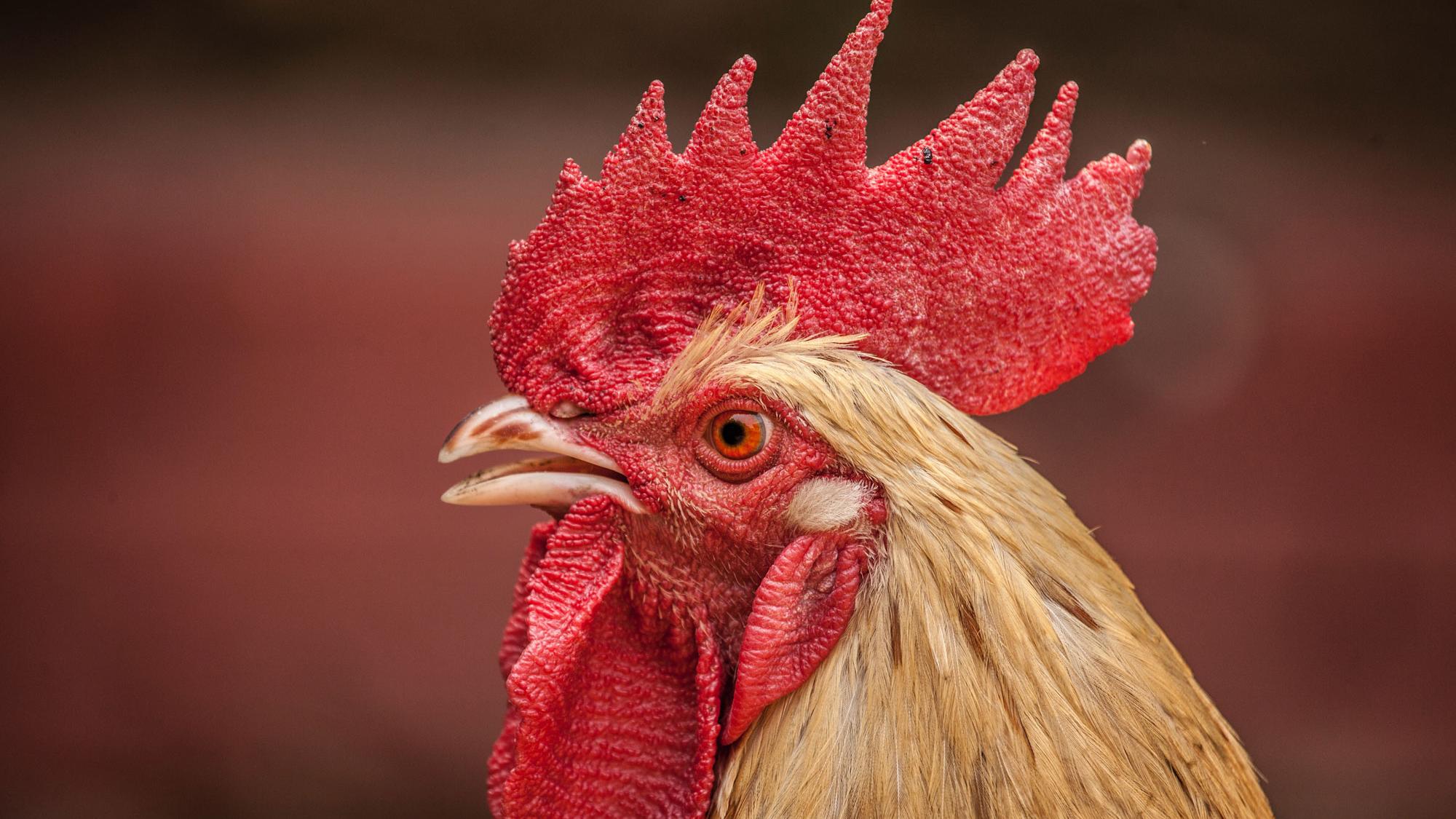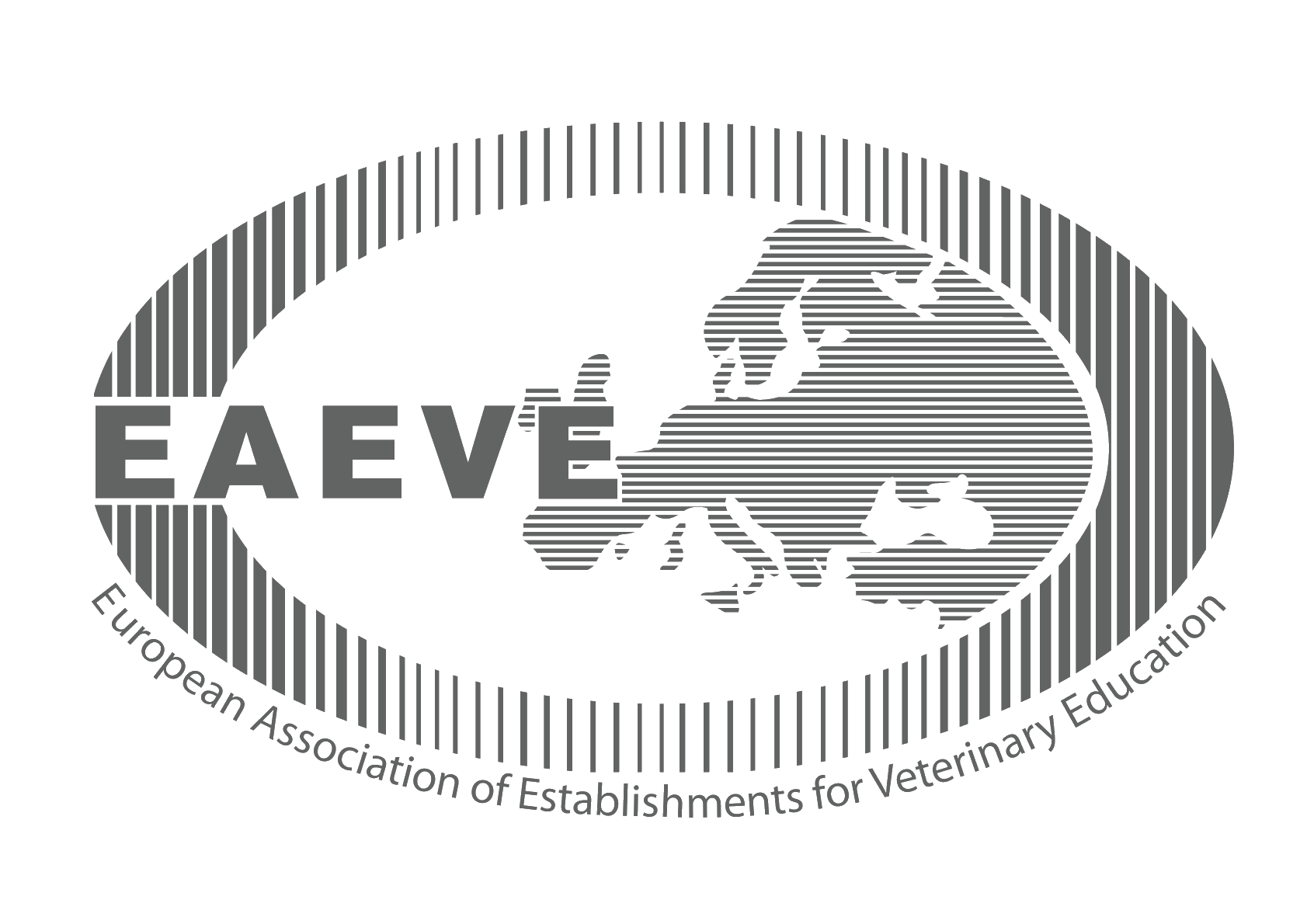Training in the field of healthcare and poultry farming systems is a learning and educational process in which veterinarians acquire in-depth theoretical and practical knowledge in the field of the poultry healthcare and breeding technology. The programme includes clinical and laboratory diagnostics, disease prevention and control methods, hatching technologies, feed technology and preparation of feed mixes, breeding technology for individual categories and types of poultry, and requirements for organic poultry production.

Healthcare and Poultry Farming Systems
Introduction
The continual development of the veterinary profession and the need to introduce modern practises into work demand new approaches to gaining additional professional knowledge. In the past decade, important changes in theoretical and practical veterinary work have been introduced at all levels of veterinary medicine.
Great progress has been achieved in the processes of thinking and critical reasoning, which are now based on clinical and diagnostic cognitive skills. Contemporary clinical examinations and tests are based on the evidential and deductive processes. Candidates can increase their knowledge and experience and direct it towards resolving diseases of individual animals and/or the herd. The work of professionals demands that they are educated, rational, and that they demonstrate a desire for an advanced level of clinical-diagnostic and critical-thinking skills.
In veterinary medicine, the need for supplementary learning is dictated by constant developments in current knowledge and new fields influencing the quality of professional work, which indirectly affects society as a whole. The European Association of Establishments for Veterinary Education (EAEVE) supports the introduction of advanced and continual post-graduate education. Post-graduate education is also encouraged by the Slovenian representative veterinary organization (Veterinary Chamber) and numerous veterinary associations.
Advanced Training in Poultry Health and Poultry Production Systems is a process from which the veterinarian should gain theoretical and practical knowledge of the subject. The advanced training encompasses clinical and laboratory diagnostics, methods for the prevention and eradication of the poultry diseases, hatching technologies, poultry nutrition technologies and preparation of compound feed for poultry, farming technologies for different categories and types of poultry and requirements for the organic farming of poultry. After completion of the programme candidates should be able to apply advanced methods in the field of poultry health and systems of poultry production. With the knowledge gained during the training the candidate should be able to determine the etiology of clinical problems, plan poultry production processes, plan and implement different programs for disease prevention, perform clinical diagnostic tests, employ prophylaxis and select therapies for poultry diseases. The successful trainee should be also able to implement and monitor procedures for the prevention and detection of infectious diseases affecting poultry as well as be a consultant for the laboratory diagnosis of infectious and non-infectious poultry diseases.
Programme information
The Advanced Training in Poultry Health and Poultry Production Systems programme is awarded 37 European Credit Transfer System (ECTS) credit points and encompasses seven modules, which are horizontally related. There are five mandatory modules and two electives. All modules consist of a theoretical and a practical part. The focus is on practical and individual work which comprises 88.45 % of the programme content.
The study requirements are evaluated upon the basis of the European Credit Transfer System - ECTS.
Price |
3.000,00 € VAT incl. |
| ECTS (European Credit Transfer System) | 37 |
| total student's work | 1110 hours |
| modules (mandatory + elective) | 5 + 2 |
| practical work | 88,5 % |
| theoretical work | 11,5 % |
Basic objectives and competences
The basic objective of the program is to educate highly qualified professionals - veterinarians in the field of poultry health and poultry production systems. The Advanced Training in Poultry Health and Poultry Production Systems programme is based on the relevant scientific research and expert knowledge, with special emphasis on practical measures. The programme is problem-oriented as it is based on actual clinical and laboratory evidence, on current animal handling techniques, and on special veterinary measures for animal health management, public health and environmental protection. Modern diagnostic procedures are applied in the programme, which demand critical thinking and reasoning, and the use of computer-based diagnostics is also encouraged.
Upon completing the programme candidates will be able to apply advanced methods in the various areas of poultry health and poultry production systems, such as: planning the poultry production processes, clinical and laboratory diagnostics, immunoprophylaxis, nutrition programmes and implementation of statutory measures regarding different categories and types of poultry. In addition, students will be capable of creative analysis, integration and solving technical problems. They will also acquire the ability to critically evaluate the applicability of research methods and their transfer into practice.
Average intake
The number of available places is 5 per year. The admission limit is five candidates in accordance with Paragraph 1 of Article 41 of the Higher Education Act.
Mentorship
Candidates choose a mentor prior to the application or when applying to the programme. A mentor or co-mentor is a person with a professional or academic title and a suitable certified professional activity in the individual field. The mentor guides the candidate during his or her training.
Admission requirements
To apply for the Advanced Training in Poultry Health and Poultry Production Systems programme candidates shall meet the following requirements: they must hold a degree in veterinary medicine, have at least three years of work experience in the field of poultry health and poultry production systems and possess a valid licence. Candidates who have completed the degree abroad must attach a Certificate of Education Completed in a Foreign Education System.
Selection criteria for limited admission
Candidates will be considered on the basis of work experience, a letter of recommendation from a veterinary association, and their scientific and professional accomplishments. Individual elements will be evaluated in the following proportions:
Selection criteria |
Share in % |
| Work experience | 50 |
| Letter of recommendation from a veterinary association | 30 |
| Bibliography | 20 |
Recognition of knowledge and skills acquired prior to admission
The recognition of knowledge and skills acquired prior the admission shall be approved by the programme supervisor based on certificates and the mentor’s opinion.
Conditions for advancement and completion of the programme
The condition for advancement is the fulfilment of study obligations for all the modules. Conditions for completion of the programme are the fulfilment of all study obligations and a successful pass in the final examination. Evidence of fulfilled obligations for all modules has to be submitted by the candidate before the final exam. Candidates are expected to pass the final exam no later than two years after the fulfilment of all obligations or four years after admission to the programme.
Title acquisition
After the successful final examination, the candidate will acquire a Certificate of Advanced Professional Studies in Poultry Health and Poultry Production Systems, which is an official document (in accordance with article 88 of the Statute of University of Ljubljana) and is signed by the Dean of the Veterinary faculty of Ljubljana and the Rector of the University of Ljubljana.
Grading system
Candidates are evaluated by oral and written exams, case reports, filled-in reports and written practical training reports. The final exam, in oral and written parts, is carried out in front of the three-member commission. The aim of the written part of the exam is to check the knowledge gained during the theoretical part of the advanced study. The aim of the oral part of the exam is to check the knowledge gained during the practical work, such as: case studies, term papers, articles written by the candidate, as well as knowledge gained during the theoretical part of the advanced study.
Curriculum and short content description
The programme offers eight study modules, six of which are mandatory and two elective. It consists of two parts, theoretical work (11.5%) and professional practical training (88.5%).
The advanced professional studies programme comprises the following modules:
- Poultry Husbandry
- Laboratory Diagnostics of Avian Diseases
- Clinical Diagnostics of Poultry Diseases
- Physiology, Pathology, Hygiene and Nutrition of Poultry
- Legal Regulation of Diseases of Poultry and Birds
- Research Methods in Veterinary Medicine
- Veterinary Informatics
- Final examination.
All modules are applicable to the field of veterinary medicine.
Curriculum
| Supervisor | Module | L | LP | CP | S | F | A | I | TH | ECTS |
| Zorman Rojs | Clinical Diagnostics of Poultry Diseases | 20 | 280 | 300 | 10 | |||||
| Jakovac Strajn | Physiology, Pathology, Hygiene and Nutrition of Poultry | 15 | 40 | 40 | 55 | 150 | 5 | |||
| Krapež | Laboratory Diagnostics of Avian Diseases | 8 | 132 | 10 | 150 | 5 | ||||
| Volk | Poultry Husbandry | 20 | 20 | 160 | 10 | 210 | 7 | |||
| Zorman Rojs | Legal Regulation of Diseases of Poultry and Birds | 20 | 20 | 10 | 40 | 90 | 3 | |||
| Zabavnik Piano | Research Methods in Veterinary Medicine * | 10 | 10 | 10 | 30 | 60 | 120 | 4 | ||
| Zabavnik Piano | Veterinary Informatics * | 10 | 10 | 10 | 30 | 60 | 120 | 4 | ||
| Zorman Rojs | Final exam | 90 | 3 | |||||||
| Total | 93 | 142 | 60 | 40 | 480 | 30 | 175 | 1110 | 37 |
Key: L lectures; LP laboratory-based practical classes; CP clinical practical classes; S seminars; F field work; A alternative work; I individual student’s work, TH total hours; ECTS credit points based on ECTS.
* Elective modules. Candidates must choose one.
Short review of modules
Lecturers: Olga Zorman Rojs (module supervisor), Rahela Juršič, Janez Poje, Neva Šemrov, Tomaž Kovačič, Liljana Štalcer, Brigita Slavec, Uroš Krapež
ECTS weighting: 10 credit points.
Basic course contents include clinical diagnosis, pathogenesis, prevention and therapy of diseases in various types and categories of poultry, including poultry reared in extensive farms. The aim of the module is to give a better understanding of the field of clinical diagnosis of poultry diseases and the right measures for the prevention and treatment of diseases.
Lecturers: Breda Jakovac Strajn (module supervisor), Anton Vengušt
ECTS weighting: 5 credit points.
The aim of the module is to give the knowledge about poultry nutrition and feed, about the characteristics and quality of feed, compound feed and feed additives as well as about the nutritional needs of certain types and categories of poultry and the importance of nutrition as an essential part of livestock production efficiency and disease prevention programmes. A further aim of the module is to give information about the wrong diets and the intake of harmful substances via foodstuffs, and about inadequate rearing methods in intensive poultry production.
Lecturers: Marko Volk (module supervisor), Olga Zorman Rojs, Jasna Perc, Rahela Juršič Cizerl, Janez Poje, Tomaž Kovačič, Liljana Štalcer
ECTS weighting: 7 credit points.
The contents of this module include methods of production and the implementation and management of semi-intensive and intensive farming of economically important species of poultry in relation to their specific biological requirements. Additional topics of the module are the types of facilities, necessary equipment and technology for breeding, organic farming methods, and the basic properties of poultry products.
Lecturers: Uroš Krapež (module supervisor), Olga Zorman Rojs, Brigita Slavec, Renata Lindtner Knific
ECTS weighting: 5 credit points.
The main contents of the module are:
- clinical patho-morphological diagnostics,
- laboratory diagnostics: various serological, virological and molecular diagnostic methods, together with the interpretation of results,
- quality management.
Lecturers: Olga Zorman Rojs (module supervisor), Brigita Slavec, Uroš Krapež, Jožko Račnik, Alenka Dovč
ECTS weighting: 3 credit points.
The aim of the module is to provide knowledge about the current legislation and implementation of measures to regulate the particularly dangerous contagious diseases of poultry and birds - avian influenza and Newcastle disease. Additional module topics are diagnostic measures for the prevention and control of zoonoses in poultry with emphasis on salmonellas, campylobacter, Chlamydia and West Nile virus.
Lecturers: Jelka Zabavnik Piano (module supervisor), Brigita Grecs Smole
ECTS weighting: 4 ECTS credit points.
The relation between experience, professionalism, and science; stages of the scientific research process; research methods and techniques; formulating a scientific research problem; the analysis of a scientific research article.
Lecturers: Jelka Zabavnik Piano (head lecturer), Brigita Grecs Smole
ECTS weighting: 4 ECTS credit points.
The relation between experience, professionalism, and science; a system of scientific and professional information; how to search for information in veterinary medicine; the formulation of a basic document; the analysis of information regarding professional work.
Lecturer: Olga Zorman Rojs (module supervisor)
ECTS weighting: 3 credit points.
The final exam represents a synthesis of the knowledge that the candidate has gained over the course of advanced training. The final exam is carried out in front of the commission, after the candidate has completed all the study obligations.
Application
Contact
Centre for Postgraduate Studies and Continuing Education
Gerbičeva 60
1000 Ljubljana
Tel: +386 1 4779 147
Fax: +386 1 283 22 43
Email: biljana.grubisic@vf.uni-lj.si
Glavna navigacija
- Informativni dan
- Why to become a veterinarian?
- Undergraduate Studies
- Postgraduate studies
- Pripravništvo
- Summer Schools
- Continuous education
- Professional Development
- International Activity
- Mednarodna dejavnost - Tuji študentje
- The Path to Creative Knowledge
- Tutoring
- Extracurricular Activities
- Career Centres
- Alumni
- Student organizations and societies
- Quality Assurance
Location
Gerbičeva 60
SI-1000 Ljubljana
Slovenija
Sample Reception
Samples are received at several locations throughout Slovenia. See where.
The veterinarian on duty
Emergency veterinary assistance for dogs and cats and a telephone number of constant readiness.
Library
A wide selection of domestic and foreign professional literature in the field of veterinary medicine and other sciences.
Main navigation
-
Education
- Informativni dan
- Why to become a veterinarian?
- Undergraduate Studies
- Postgraduate studies
- Pripravništvo
- Summer Schools
- Continuous education
- Professional Development
- International Activity
- Mednarodna dejavnost - Tuji študentje
- The Path to Creative Knowledge
- Tutoring
- Extracurricular Activities
- Career Centres
- Alumni
- Student organizations and societies
- Quality Assurance
- Clinics
- Diagnostics
- Dobrobit
- NVI
- Research
- About us
- Hub



